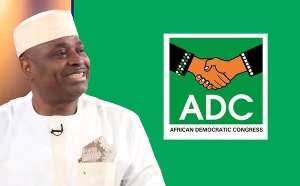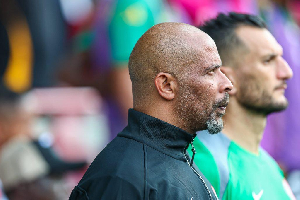Years ago, out of extreme circumstances was a nation born. Harsh as these circumstances were this nation came into being through the instruments of succession as a means of survival. Ironically these people who had opted to secede had prior to this period acted as the cement that kept the nation together and had contributed so greatly to that nation they wanted to pull out from. That nation was Biafra, a country that survived and fought for 33 months against the onslaught of the Nigerian nation which was aided by two world powers and against disease and starvation.
Biafra from all indications was a model, she was a beacon of light to all who through the inadequacies of their political systems all over the world found themselves in somewhat a disadvantaged structure.
But what really was Biafra’s identity? What legacies of history can be attributed to this Republic of the free men and women east of the Niger River.
Yes Biafra lost, yes Biafra exists only in the minds of the ordinary Igbo man, thus it is a part of us, it is our history. Therefore there is need for us as a people to remember the greatness of the past that we may in the present work towards a glorious future!
Firstly, Biafra was not merely the sheer, perhaps whimsical will of one man, then Colonel Emeka Ojukwu to lead his own nation. Some historians wrongly see Biafra as the egoistic call of Ojukwu. Some say that he stalled every move by Gowon to heal the wounds, some allege that his rich background as an Oxford graduate contributed to his obstinacy to Gowon’s attempt to bring the situation in the nation to normal. It is said that he also felt that by virtue of rank, he and not Gowon was fit to lead the country. Gowon had sometime ago made comments saying that Ojukwu never believed that he would go to war. This my dear reader remains untrue since Biafra was more or less the gasping response of the people of the Eastern Region to the senseless slaughter that befell her people in the North under Gowon’s ‘born again’watchful eye in Lagos. Where men, women and cjhildren were butchered with much ceremony during those dark days of long knives. We should not forget that Ojukwu, then leader of the Eastern Region had asked those who survived the first onslaught to return back, thus to have again expected Ojukwu to trust the safety of his people to the vacilliating promises and assurances of Gowon and Hassan Kastina who then was the Military Governor of the Northern is similar to asking the lamb to accept a hungry lion’s guarantee of safety and security even if the lion swore with his ancestors mane.
These petty revisionists are so quick to forget that the Aburi Accord which was unilaterally repudiated by Gowon was another reason for the declaration of Biafra, Aburi was perhaps Ojukwu’s last hope that he would preserve the link with Nigeria without bloodshed nor the further humiliation of his people, Gowon’s flip flop manner at implementing the Aburi Accord forced Ojukwu into the hands of the hawks who demanded Biafra.
Even at that, Ojukwu still believed in one Nigeria, operating under a different framework, a nation that moved further apart in order to preserve her existence instead of a collision that would serve no one nor region any good. If Ojukwu was power hungry or one seeking for his own kingdom, the Eastern Region would have been more than prepared for seccession and his boast of no force in Black Africa would defeat Biafra would have for sure been more than a boast. We can surely see from history’s many versions that at the point of secession, Biafra had a few arms and even well trained men. Is it possible that Ojukwu who was no doubt a strategist , who would always understand the long consequences of war and it’s odds, would have gone into seccesion without adequate preparation? It would therefore be unfair to think otherwise, Biafra thus was a forced child of circumstance that Ojukwu was asked or should I say forced to give birth to.
Again, it will be unfair for Biafra to be described as an Igbo republic or worse an Igbo rebellion. A close look at the Eastern Region which pulled out of Nigeria shows that it was made up of the Igbos, Ijaws, Efik, Ikwerre, Ogoja, Ibibio, Kalabari and so on. In the build up to the declaration of Biafra, all within the Eastern Region, living then in the North as at the time of the pogroms had been declared as Yamirin( A derogatory word used by the average Northerner to describe the Igbo man) all suffered either the loss of a loved one or a disfigured one, the Northern mob encouraged by those in authority slaughtered everyone who was from the Eastern Region under the guise that they were slaugthering the Yamirin.
Not only that, the Eastern Region minorities were adequately consulted on matters affecting the Region, even the choice of willing to be unfree partners in any association of a political or
Economical nature was offered to the Eastern Region leaders including the minorities whose response was a solemn seven point declaration authorising Ojukwu to declare the Eastern Region as a Republic as soon as practicable.
Some cynics may attempt to pooh pooh the idea by asking why minorities were quick to embrace one Nigeria as soon as they were overun by Benjamin Adekunle’s Third Marine Commandos, my answer to this would be who wouldn’t? Or would the Yorubas from Ore to Lagos not have danced welcome to the ‘liberating ‘ Biafran Army which on the course of its Bliztrieg would have swept an already panicking Gowon out of Lagos?
Did Paris not welcome the German Army? Did Crimea not welcome the Russians?
Thirdly there are many who assert that Biafra was everything unafrican since she allied herself with countries that were deemed then as not to friendly to the African cause. Countries like Portugal and South Africa ( Racist South Africa) top this list.
Those who agree with this line of argument are simply naïve, the support of these countries for Biafra was simply political. Nigeria at that point presented the biggest threats to South Africa’s hegemony in Southern Africa. Nigeria was also to back those seeking independence in Namibia and Angola. Namibia then was under South Africa as its Trustee while Angola was a colony of the Portugeuse. Thus the balkanization of Nigeria would have been a Christmas gift to both nations. Even at that, Biafra’s major agenda was survival as a nation first , the war could not afford Ojukwu and other policy makers the luxury of selecting friends based on ideology and what have you not, even if it meant aligning with the devil himself. Again those who hold such myopic views forget that Biafra had the likes of France, Kaunda’s Zambia,Bongo’s Gabon, Nyerere’s Tanzania, Boigny’s Ivory Coast and Papa Doc’s Hait supporting and recognising Biafra. Of these nations the Pan African credentials of Nyerere and Kaunda is not in doubt, they forget this or the fact that Britain which was supporting Nigeria was treating Ian Smith’s racist Zimbabwe with kid gloves. What of Nigeria which at independence had refused to give the Soviet Union even a room for its embassy was backed Soviet MIG’s, guns and diplomatic support during the war?
Biafra today was the first attempt by the African to define himself and redraw his borders, how in God’s name could such be unafrican?
The cost of the war today is still with us, the loved ones, the properties destroyed and confisticated and the perceived marginalisation of Ndigbo , where we have five states, least number of Local Government Councils, lack of federal presence etc are legacies left behind to teach us a people a lesson, but come what may, and in what manner, the Igbo people know and will know that Biafra had her identity and it is not what they teach us in our history classes or what our instituitions have been primed to say but it is in our belief that then and as in now, our will to freedom, justice and survival was God given and that it was our duty to take it.
In memory of the millions of lives who died in the struggle!
Opinions of Saturday, 5 June 2021
Columnist: thenationonlineng.net















